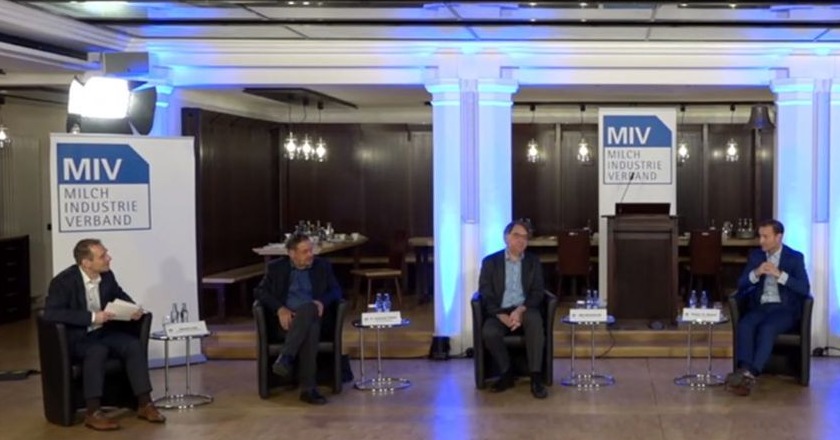
Prof. Holger Thiele, ife Institut für Ernährungswirtschaft Kiel, today at a major online conf organised by German dairy industry association MIV presented results from a study of his Kiel University on the consequences of Green Deal / Farm to Fork strategy: the number of dairy cows/cattle will decrease by 13%, milk production will decrease by about 6% until 2030 in Germany. This means that production will become more intensive in the future. n the market, according to the Kiel impact assessment, a price increase of up to 36% is to be expected at raw milk level, and the volume of EU dairy exports could also decrease by one million tons.
There are few differences in content between the old and the new German government with regard to the view of the the Green Deal, now the issue is only somewhat more prominently in the foreground. Udo Hemmerling, German Farmers’ Association DBV, made it clear that the Green Deal / Farm to Fork had only been set up politically, but were in no way technically underpinned. It does not exactly inspire confidence when the Commission keeps studies under wraps and Mr Timmermans unilaterally withdraws competences from the Commissioner for Agriculture, Hemmerling spoke of “bad government” in this context.
However, there is still little clarity about what the industry can really expect from Green Deal / Farm to Fork. So far, the Commission has only set targets, but is taking its time with an impact assessment. Only the “harmless part” is known so far; the reduction of fertiliser, pesticide and antibiotic use, etc. will only come in 2022/23. Nevertheless, it is already clear today that a reduction in the number of animals kept is a core element of the EU strategy. Hemmerling said a mere reduction in livestock numbers is “climate protection for dummies”. Rather, he said, it was about improvements in feeding and manure management.



